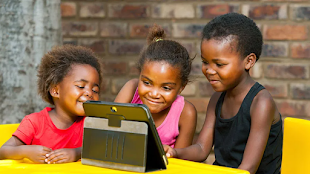Start with the basics: Begin by explaining to your kids what digital citizenship means and why it is essential. Explain to them the importance of being safe, respectful, and responsible online. You can use examples from their daily lives to help them understand the concept better.
Set clear rules: Set clear rules for your kids to follow when using technology. For example, you can limit screen time, monitor their online activity, and ensure that they only use age-appropriate apps and websites.
Talk to them about online privacy: Explain to your kids the importance of keeping their personal information safe online. Teach them not to share their passwords, address, phone number, or any other sensitive information online.
Encourage open communication: Encourage your kids to talk to you about any online experiences they have, whether good or bad. Let them know that they can come to you with any questions or concerns they have about their online activity.
Model good behavior: Be a good digital citizen yourself. Model the behavior you want your kids to adopt. For example, avoid using your phone or computer during meals or family time. Be respectful of others online, and avoid sharing or posting anything that could be offensive.
Teach them about cyberbullying: Explain to your kids what cyberbullying is and how to prevent it. Teach them to be kind and respectful to others online and to report any bullying they witness.
Use educational resources: There are many educational resources available online to help teach kids about digital citizenship. You can use videos, interactive games, and quizzes to make learning fun and engaging.
Teaching kids digital citizenship at home is essential in helping them navigate the online world safely and responsibly. By following these tips, you can help your kids become responsible digital citizens.
What Is Digital Citizenship?
Digital citizenship refers to the responsible, safe, and ethical use of technology, the internet, and social media. It encompasses a set of skills, behaviors, and knowledge that are necessary to effectively navigate the digital world.
Digital citizenship involves using technology in a positive and productive manner while respecting the rights and privacy of others. It involves understanding the potential risks and consequences of online behavior and taking steps to protect oneself and others.
Some of the key elements of digital citizenship include:
Online safety: Knowing how to protect oneself from online threats such as cyberbullying, online predators, and identity theft.
Privacy: Understanding how to protect personal information and respect the privacy of others.
Responsible use: Using technology in a way that is respectful, honest, and appropriate.
Critical thinking: Evaluating information online, understanding the validity and reliability of sources, and avoiding misinformation.
Digital literacy: Having the necessary skills to use technology effectively and efficiently.
Respect: Treating others with kindness, empathy, and respect in online interactions.
Digital citizenship is important for everyone, but especially for children and teenagers who are growing up in a world where technology is ubiquitous. By promoting digital citizenship, we can help create a safer and more positive online environment for everyone.




0 comments: